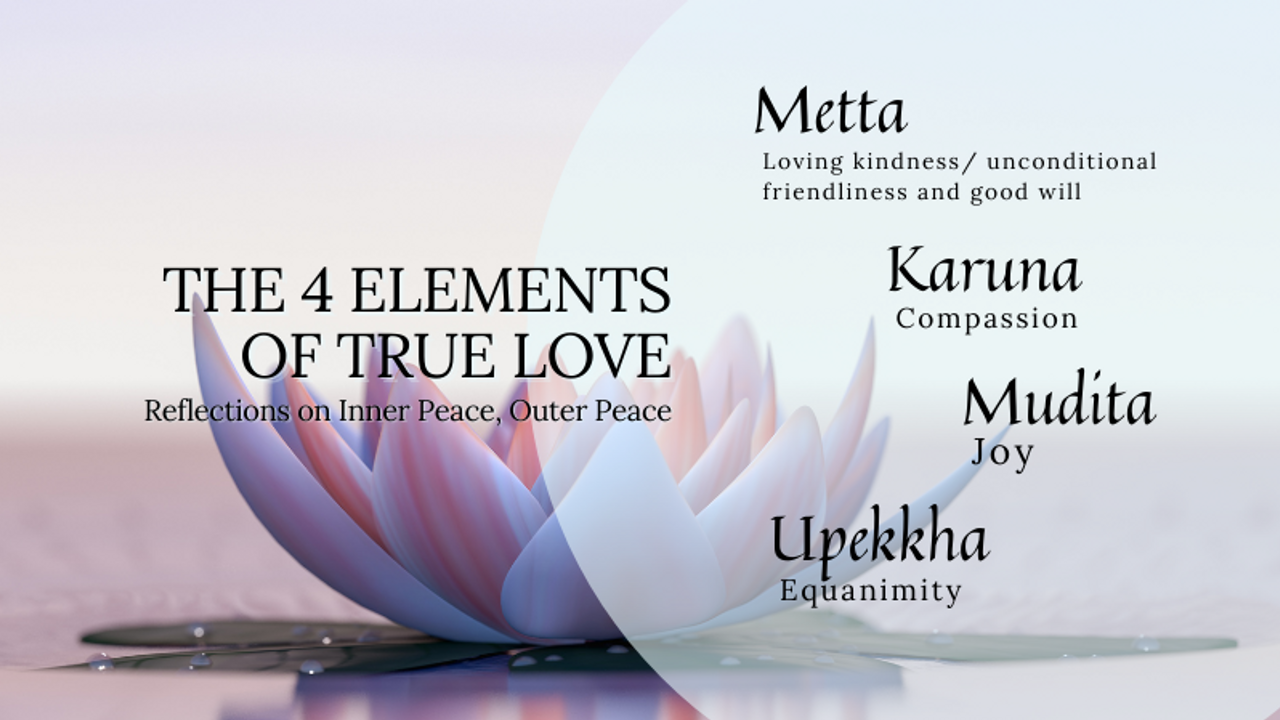Boundaries and Equanimity as Part of Loving Well
Nov 04, 2021
In the Buddhist tradition, there are 4 Elements of True Love as Thich Nhat Hanh calls them, traditionally called The Four Immeasurables or 4 Brahmaviharas/ Divine Abodes. They are immeasurable because they are infinite/ without limit. They are abodes because we and others can find refuge in them, and within these qualities is where divinity abides, whatever that means to you. The 4 together comprise a balanced love:
Metta, or loving kindness/ unconditional friendliness and good will - the intention & capacity to offer happiness & wellbeing, to ourselves and others.
Karuna, or compassion - the intention & capacity to understand one’s suffering and help remove and transform it in ourselves and others.
Mudita, or joy - the intention & capacity to nourish and celebrate joy, in ourselves and others.
And Upekkha, or equanimity - love with stability, not elated or distressed by the ups and downs in one’s life, not becoming agitated even as we keep our hearts open. This last aspect of love is about non-attachment/ not clinging to outcome, which brings freedom to oneself and the other person.
Kindness, joy, and compassion are beautiful, necessary qualities for true love. But part of loving well is non-attachment. Love with attachment leads to suffering for ourselves and those we love, because it means we need them to be a certain way for us to be ok. This can take away their freedom, makes our own well-being dependent on the actions or conditions of another, on things we have no control over. This is a set up for suffering, when we’re attached to things being a certain way, or people being a certain way.
Equanimity is essential in having a clear, calm mind. It brings space to ourselves and others, letting go of tightness and tension. Equanimity is not the same as indifference. But it brings balance to the qualities of loving kindness, compassion, and joy. It is a type of surrender - not giving up, but surrendering our illusion of control, even as we continue to care for others and bring our caring into action. It can make our caring action more effective because we don’t burn out when the fruits of our action are not apparent.
Equanimity is at the heart of the Serenity Prayer:
May I have peace of mind to accept that which I cannot change,
The will and effort to change that which I can change,
And the wisdom to know the difference.
There are several phrases that can help us to practice equanimity, such as:
- All beings are the owners of their own karma. Their happiness and unhappiness depends upon their actions and many causes and conditions, not upon my wishes for them.
- May I accept things as they are.
- All beings have their journey.
- I will care for you but cannot keep you from suffering.
- May my heart be at ease with the changing conditions of my life.
When we’re facing suffering around us, including in the people we support or work with, equanimity can help us hold suffering with compassion, without becoming consumed or overcome by it. There are many healers, teachers, and other caregivers who “take on” others’ problems to an extent that it negatively impacts their own health and peace. There are also helping professionals who are confronted with so much suffering, they build walls and harden their hearts, which does not serve the people in their care, and makes their own lives and experience more constricted, not less. The 4 Elements of True Love, together, helps us find the balance to show up for those we care about and show up in the world.
Get Personalized Health Guidance
Looking to improve your wellbeing? Reach out to schedule an appointment for tailored health advice and to start getting relief soon.
Book Now